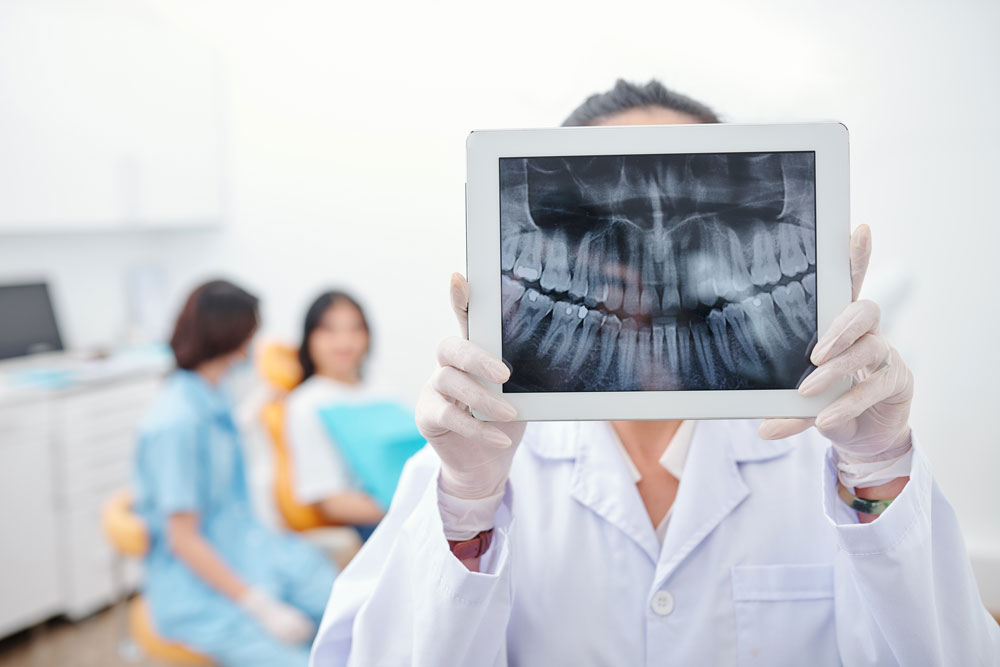Can the medication used to treat osteoporosis cause problems with my jaw?
The short answer is yes, but there is way more to this answer. Here are some key background points to review:
- The medications frequently used to treat osteoporosis are from a family of drugs called bisphosphonates. There are several ways of taking this medication, including pills or by an IV.
- There is a rare complication that can occur where an area of bone in the mouth becomes exposed and won’t heal properly. The usual way for this to happen is after having a tooth pulled.
- A person with untreated osteoporosis is much more likely to suffer a hip, vertebral or wrist fracture. An osteoporotic fracture will occur in 1 out of 2 women during their remaining lifetime if osteoporosis is not treated.
- Up to 38% of patients may die within one year of having a hip fracture due to the associated changes in health & living conditions after the fracture.
- When taking bisphosphonates orally (a lower dose), the chance of developing this jaw bone complication is about 1 in 100,000. Another way to think of it is, it would be 10-15 times more likely for you to die in a car crash than having this problem.
- When receiving higher doses of this medication (by IV and often for cancer therapy) there is a greater chance of having the jaw bone complication; about 0.1-1%.
The way to think about this whole issue comes down to risk vs. reward.
- It is very clear that complications from a fracture (hospital care, nursing home, risk of death) are significantly worse than having a small area of exposed bone in the mouth that can usually be treated with 2-3 months of swishing with an antibiotic rinse. So, it makes perfect sense to treat the osteoporosis with the bisphosphonate medication. In the rare circumstance that the jaw problem occurs, it is straight forward how to take care of it.
- Bisphosphonates have been found to be an effective way of treating bone cancer or cancer metastasis to the bone. It is very clear that a cancer treatment of high dose IV medication is preferable to the rare jaw bone problem.
Other recommendations
- Before you begin treatment, have your dentist thoroughly check your teeth to make sure that you do not need any teeth pulled.
- During your osteoporosis treatment see your dentist regularly so any tooth problems can be treated in a way to avoid having a tooth pulled.
- It is sometimes recommended by a dentist or doctor to take a ‘drug holiday’; to not take any bisphosphonates for several months before having a tooth extracted. There is no clear evidence that is of any value toward preventing the jaw problem.

